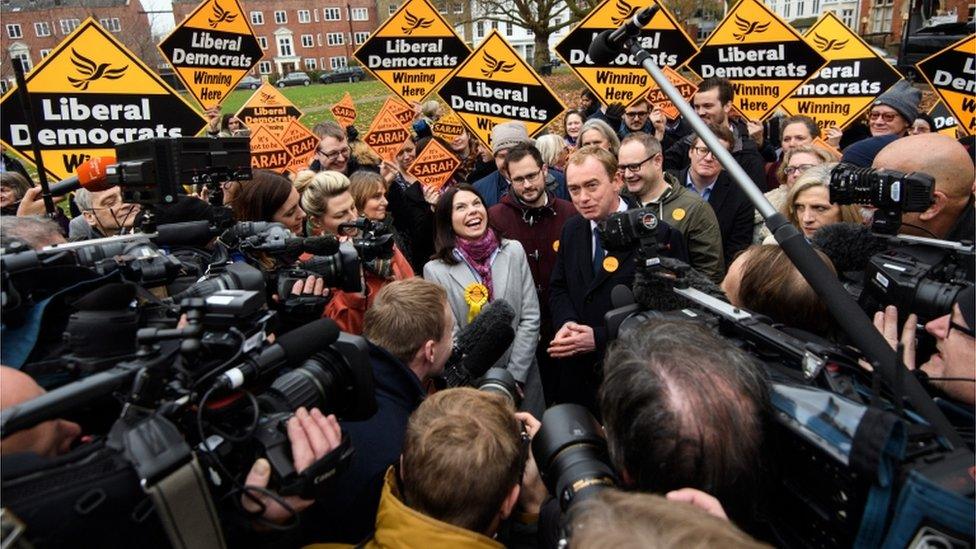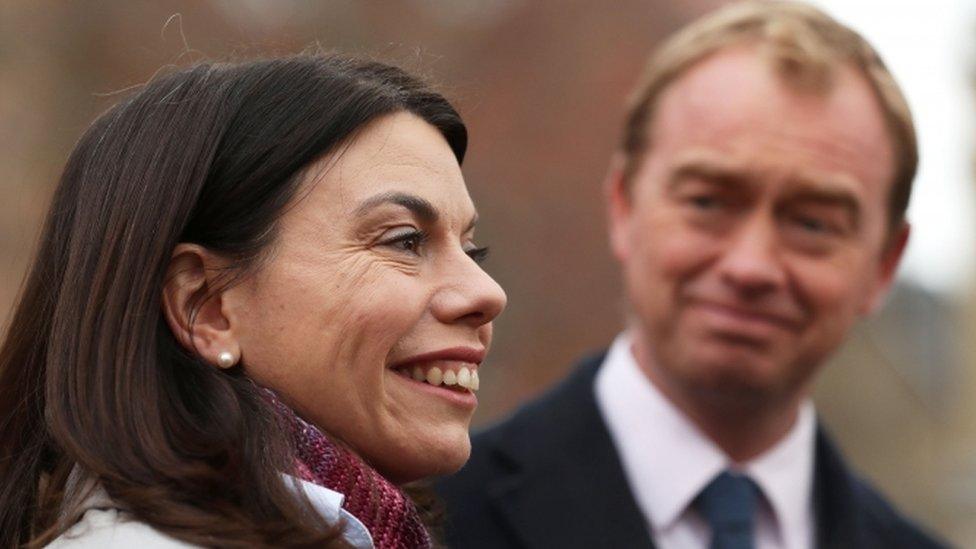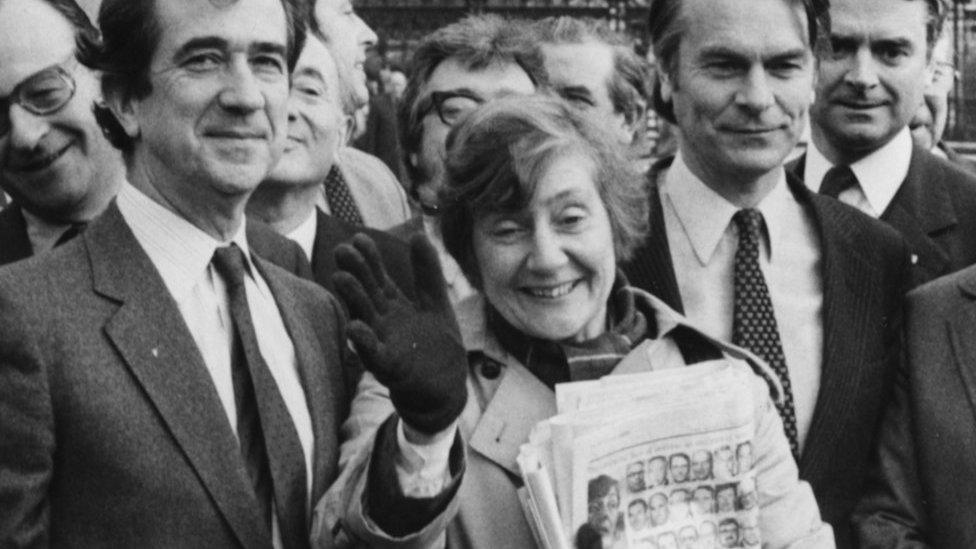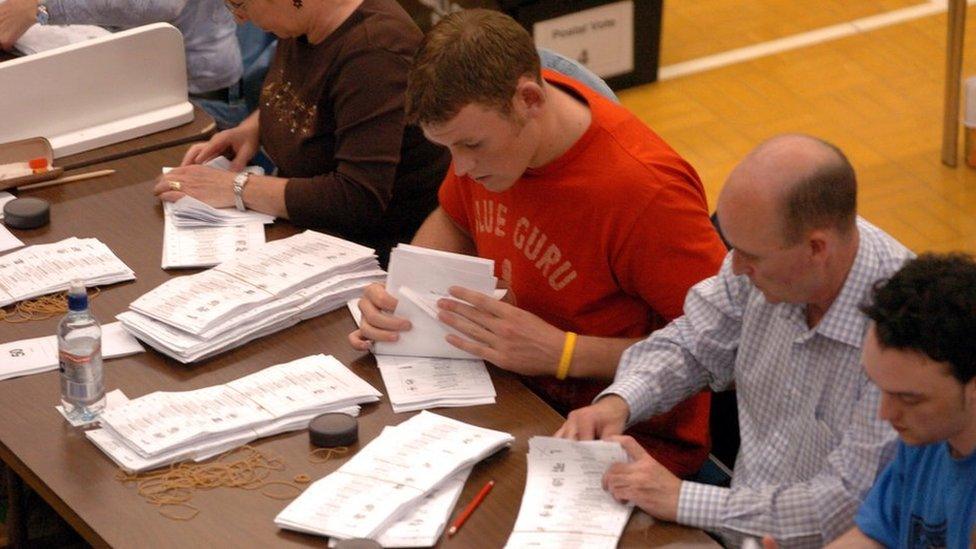Analysis: Was Richmond Park by-election a vote on Brexit?
- Published

There is much about the Liberal Democrats' win in Richmond Park that is worth remarking on.
It saw a huge swing to the party which, just last year, saw its support collapse after five years in coalition government.
The decision by the south-west London seat's previous incumbent Zac Goldsmith to follow through on a political point of principle over Heathrow expansion failed miserably.
And it saw Labour's vote fall dramatically, with the Lib Dems taking the credit for scooping up their supporters.
But it is the claim by the victor Sarah Olney that the result is a verdict on Brexit that is most worthy of examination, because it goes to the heart of the schism that has been driven into British politics this year.
Lib Dems are back, says Farron
Lib Dems oust Goldsmith in Richmond Park
Some of the testy language of the referendum campaign was echoing around Richmond and beyond over the last 24 hours.
Ms Olney said "intolerance, division and fear" could not be allowed to win when it came to Brexit.
She said she would vote against triggering Article 50 - the process to take Britain out of the EU.
'Get stuffed'
This caused the Brexit-supporting Conservative MP James Cleverly to accuse Ms Olney of starting her political career by telling the British people they can "get stuffed".
The Lib Dem leader Tim Farron said the result was "historic" and a verdict on a so-called "hard" Brexit - taking the UK out of the single market.
But was this claim justified?

Zac Goldsmith had resigned as a Conservative to fight the seat as an anti-Heathrow-expansion independent
Of course the great clanging caveat that has to be dropped into Mr Farron's assertion is what we know about Richmond Park's voters.
As his political opponents have pointed out - it is hardly surprising that an area that voted heavily to remain in the European Union backed a "Remain" candidate in this by-election.
But Mr Farron has attempted to spike this line of attack by claiming that a third of Conservative "Leave" voters switched to the Lib Dems on Thursday.
If true, it would appear to be a significant change in sentiment by many of those who backed leaving the EU.
Mood of country
It appears the claim was based on canvassing figures collected by his party during the by-election campaign.
But the polling guru and Professor of Politics at the University of Strathclyde John Curtice is less convinced.
He believes that, despite the Liberal Democrats' belief, many voters who backed Remain in the referendum did not vote for the Lib Dems - puncturing the idea that the poll was a referendum on Brexit.
He points out that Ms Olney's share of the vote in the by-election was below 50% - whereas more than 70% of Richmond voters backed Remain in the referendum.
'Hard Brexit'
Professor Curtice says: "To try to suggest that this by-election success tells us anything about the mood of the country with respect to Brexit is mistaken.
"The polling evidence is that we still have a situation where the country is divided pretty much 50/50 on the merits of Remain versus Leave, much as it was in June."
Despite this, it is hard to disentangle the fevered debate about Brexit from this, more regular, cycle of political events.
The Richmond result will empower those described by Mr Farron as "moderates", who are keen to use any tool possible to force a "soft" Brexit - in particular trying to maintain Britain's position in the single market.
And with the government's appeal to the Supreme Court over whether it or Parliament has the right to trigger Article 50 only days away, the political intensity in this debate is only likely to increase.
- Published2 December 2016

- Published24 February 2017

- Published2 December 2016
